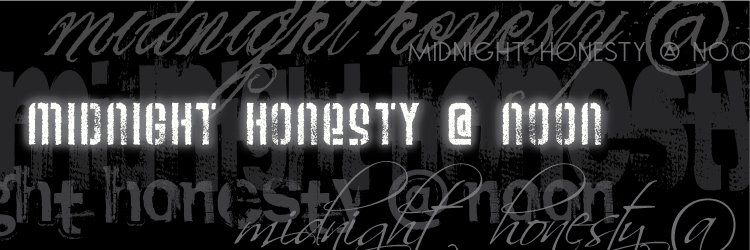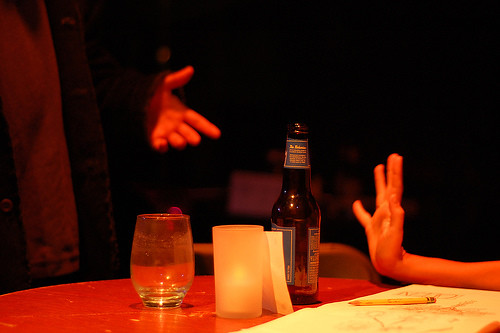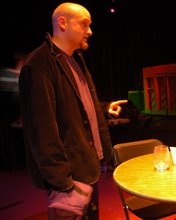Mind The Gap
We're going to cover a little bit of ground, so bear with me.
I promised my salvo into the late lamented "What is Wrong with Theatre" barrage, but that battle has cooled for this cycle, and honestly? We all know what is wrong with theatre, we all whine about it, and then we keep on at it anyway. The gist of my post was that the primary problem is the attitude of theatre artists in general (viv-a-vis wanting the moon for free) and the War on the Audience in particular. But we know, the theatre world doesn't need me repeating it. So I won't. Yet. That battle will come around again if I get all ornery about it later.
I am in heavy information acquisition mode. Reading every blog under the sun, movie after movie and 4 shows in the last two weeks. I now have a better understanding of the theatrosphere's reticence to review shows. For my (non-renumerated) purposes, if you can't do it honestly and really gain something from the analysis why do it? And in a community this small how can you do it honestly without stubbing toes?
Yeah I don't know.
Isaac's Question earlier this week leads into what I was going to post about anyway, so let's turn two shall we?:
In what ways is collaboration valuable
(or: how come we take it as a given that it is, if it is not)?
Collaboration is valuable (to my thinking) in three primary ways:
- It helps any given artist paper over their gaps.
- It allows artists who don't have a singular vision the ability to make art.
- It allows for synthesis of ideas outside of the vacuum of one mind.
I am a cerebral person. Well, that gives me rather more credit than I deserve, but I haven't found a word that fits that doesn't give more credit than I'm trying to claim (intellectual, academic, they give more of a sense of focus than I'm really talking about - maybe analytical is what I'm looking for). When I begin a project I jump in headfirst. Generally It's also head last.
This is useful in that the show gets a thorough going over and I take care of the themes and subtleties of the show quite well. But it means that I tend to be hamfisted about the physicality of a given show, and my productions lack sex almost as a rule.
I'm not really sure how this blind spot opened up. But it's there and it's something that I need to stay aware of while working any given show. It's something I forgot about in the run up to my last show, and it suffered for it.
Intermission (said last show) was a collaboration between myself and my current partner in crime Will Snider. We had three months from go to curtain to create and stage a show. Will and I pieced together the concepts and Intermission became a relationship anthology set in a bar/club with a live band playing music original to the show. The cast improvised their dialogue, and they fine tuned details of their relationships.
And the show was just okay. It was mushy. (It lacked specificity as Peggy Rae would have chastised me). It suffered in the way George Hunka would have told me before hand that it would suffer. It lacked a singular declarative voice. (please note: the preceding is a paraphrase)
Further, due to the aforementioned blind spot, it lacked sex. A relationship anthology that lacked sex. Not that we didn't talk about it. It just wasn't the underlying tension. We missed it because it's my blind spot, and unfortunately one that my collaborator shared. Given the nominal writer and director both not thinking about the sex of it, and a largely young cast... the sex was dodged when it wasn't ignored.
I was also in the show. (This process was just chock FULL of great ideas). My scene was a five-year-later meetup between two people who had only known each other briefly in passing and now were meeting again under changed circumstance for both. Would they connect for real this time? Were they meant to be together? Is there any such thing as "meant to be together"?
It's been done, sure, but it comes up again and again because it's a real situation, and Will and I were (and are) very interested in Fate as a concept. But because Will and I sat in my living room for two months and hashed out faith versus free will the scene became the most talky go-nowhere scene you can imagine. There was never the "Will They?"/"Should They?" tension that should have suffused the scene. (That's what rewrites and remounts are for....)
In the best of all possible worlds one of Will or I wouldn't have the sex blind spot. It would make our collaboration stronger, because we would be covering a hole in the other's approach. Instead the similarities in approach meant that our flanks weren't covered.
What are your gaps?
How do you combat them?
What do you find beneficial in generative collaboration?
(i.e. not when you're telling a designer how to do their job, but in REALLY collaborating)








